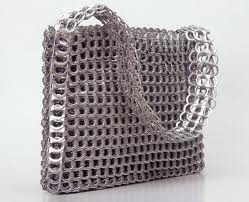Paper
- Paper can decompose in under five months, but not if it’s a plastic bag! if its inside a bag it won’t decompose for at least twenty years.
- Don't try and recycle anything with food or oil on it--not only is it not recyclable but it can render the other paper products around it unusable as well! So this includes used napkins which many think can be recycled as paper.
- Wet paper is also unrecyclable. This is because the wet paper fibers are shorter and less valuable to paper mills..
- If we recycled just 10% of the paper we throw out, we could save 25 million trees!
- To produce each week's Sunday newspapers, 500,000 trees must be cut down
- 40% Less energy is required to manufacture paper from recovered paper. Recycled fibre reduces air emissions in papermaking by 70%!
- Every ton of paper that is recycled, saves 17 trees
- The average household throws away 13,000 separate pieces of paper each year. Most is packaging and junk mail.
Plastic
- It takes up to 400 years for a plastic cup to decompose!!!
- The number inside the center of the Universal Recycling Symbol (URS) - the triangle usually on the bottom of the item - indicates the recyclability of the plastic item. If there is no number, then the material is considered “generically recyclable.”
- Recycling numbers 1,2, and often 5 are commonly accepted by most curbside recycling programs.
- Recycling plastic saves twice as much energy as burning it in an incinerator.
- Plastic bags and other plastic garbage thrown into the ocean kill as many as 1,000,000 sea creatures every year!
- Imagine how much plastic you can save by taking your own shopping bags! Woolworths have some really chic ones that are Glam and Green ;)
Glass
- Glass never wears out--no matter how old a bottle is, it can always be recycled.
- A glass bottle can take up to 1 million years to decompose in a landfill.
- Every month, we throw out enough glass bottles and jars to fill up a giant skyscraper. All of these jars are recyclable!
- Mining and transporting raw materials for glass produces about 385 pounds of waste for every ton of glass that is made. If recycled glass is substituted for half of the raw materials, the waste is cut by more than 80%.
- Most bottles and jars contain at least 25% recycled glass
- We save over a ton of resources for every ton of glass recycled -- 1,330 pounds of sand, 433 pounds of soda ash, 433 pounds of limestone, and 151 pounds of feldspar.
- Today, about 550 000 tons of waste glass finds its way into landfills in South Africa.
Aluminum
- It takes 500 years for an aluminum can to decay.
- A recycled aluminum can return, shiny and full, to the shelves of a grocery store a mere 60-90 days after they are collected by the recycling plant.
- Recycling one aluminum can saves enough energy to run a TV for three hours.
- There is no limit to the amount of times an aluminum can be recycled.
- Recycling new aluminum cans from used cans takes 95 percent less energy than using virgin materials.
- Steel is made from one of the earth's most common natural resources, iron ore, as well as limestone and coal.
- Recycling one tonne of steel cans saves 1.5 tonnes of iron ore, 0.5 tonnes of coal and 40% water usage.
- Steel cans are becoming lighter. Nampak reduced the weight of our 340ml cans from 73g in 1955 to 31g today.
So there are some interesting facts on recycling that i hope u will find thought provoking
Make recycling Glam and Green
The Glam Green Girl
xXx


























Hey! I am a recycled fashion designer... I love your blog. Check out my website... www.garbagegoneglam.com
ReplyDeleteHi Kristen :) i just LOVE your website and the company! please email me on theggg@mweb.co.za and then we can do something together? looking forward to hearing from you xXx
Delete